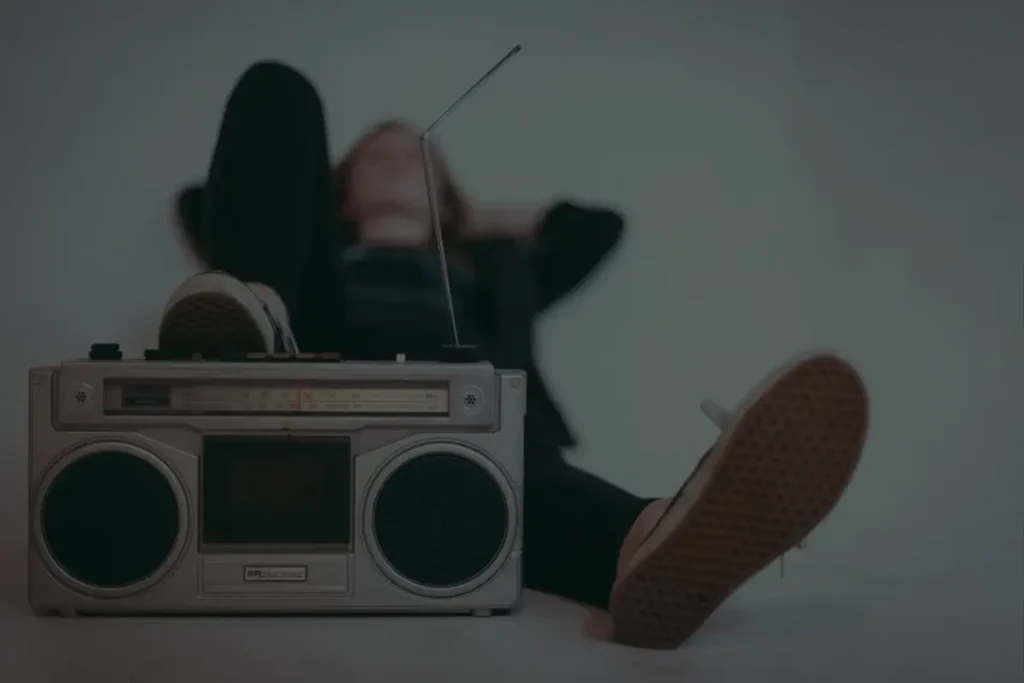The Ripman’s Return: Deconstructing 10 Sacred Cows
Written by Paul Ripley on June 17, 2024
After 15 long years holding court on the airwaves, “The Ripman Show” is finally back to write a few words of wisdom trigger the music snob purists.
To celebrate this auspicious return, I’ve decided to take a proper look all over some of the most sacred relics lining the classic rock canon.
That’s right, it’s time to deconstruct those hallowed albums that have been shoved down our throats for decades by overzealous
PR merchants and Record Label apologists. The following are textbook examples of once-hip records that seriously Do Not Hold Up in 2024.
Cue the hate mail!
Oasis’ Sad Memory Jog: (What’s the Story) Morning Glory? at 30
In the wake of Britpop’s 30th anniversary celebrations, it’s hard to avoid the reappraisal of albums like Oasis’ gargantuan 1995 breakthrough (What’s the Story) Morning Glory?. Back in its heyday, the record’s inescapable ubiquity made it seem like a monumental cultural event. Three decades later, it plays like a laughably dated millstone around the neck of 90s rock.
The Gallagher brothers were always more about swagger than substance, as their music’s lasting irrelevance can attest. Listening to Liam’s petulant whine on radio staples like “Wonderwall” and “Don’t Look Back in Anger” is a cringe worthy experience today. His nonsensical lyrical babblings offer zero insight, representing the vacuous apex of inarticulate lad-rock.
On the song writing front, Noel shamelessly pilfered from his obvious classic rock influences with the artistic discretion of a starving cat. (What’s the Story) Morning Glory? is really just a cheap re-tread of the Beatles, Rolling Stones and Sex Pistols catalogues stapled together. Did we really need the “Hey Jude” piano outro rehashed on “Don’t Look Back in Anger?” Or the T.Rex glam stomp of “Morning Glory?” It’s all been done countless times before with far more verve and personality.
In 2024, Oasis’ former glories have devolved into a mid-90s cultural punchline – the soundtrack to an embarrassingly excessive era when boorish, artifice-laden guitar rock briefly went stratospheric. We’d be better off leaving this Morning Glory corpse unmolested in the Ibiza-flecked recesses of lad culture history. The 30th anniversary isn’t giving (What’s the Story) new life – it’s just reheating the rotten leftovers from when we should’ve known better.
Duran Duran’s Relic of Vapid Excess: Rio at 42
As the 80s nostalgia industrial complex kicks into maximum overdrive, we’re forced to once again reckon with the musical crimes of Duran Duran. The Birmingham pretty boys’ breakthrough 1982 album Rio has been feted as a pioneering artefact of New Wave’s glossy MTV heyday. But stripping away the dated music video sheen reveals Rio to be a hollowed-out bagatelle – all style and no substance.
From the opening synthetic slap-bass notes of the title track, it’s clear we’re in for a vapid, narcissistic romp through the dizzy heights of late cold war decadence. Rio’s featherweight funk-pop is sonically arid, propped up by vaporous layers of hollow gated reverb and enough hairspray to depopulate a continent’s worth of ozone. Simon Le Bon’s libidinous yowl hasn’t aged well either – like a cut-rate Freddie Mercury after getting his tongue soaked in candy floss. “Hungry Like the Wolf” weaponised his brain into a call for masturbatory indulgence directed at the suburban mall rats they so expertly hoodwinked.
Beyond the vacant come-ons, Rio is a listless drag dominated by the kind of generic filler that makes you pray for anyone to change the record. The band tries on various stylistic outfits in doomed pursuit of an identity – disaffected punk snarl, futuristic sci-fi sheen, overwrought balladry. None of it sticks. It all devolves into the same trifling, hollow-calorie pap.
In retrospect, it’s startling that Rio was such a totemic generational album for the MTV kids. You could side-line almost everything Duran Duran recorded and replicant boy bands would still crank out inferior replicas ad-nauseam. Rio epitomises the most trivial and expendable aspects of its era’s pop cultural wasteland. More than 40 years later, is this really the punch less artefact we want to hoist as an 80s milestone? Please, wake me up before the ceremonial enshrinement of this glossy tripe into the canon!
Pink Floyd’s Bitter Aftertaste: The Final Cut at 41
As the endless 70s rock revival mill churns on, we’re now forced to critically re-examine even the most tedious of the old dinosaur albums. Case in point: Pink Floyd’s insipidly morose 1983 dud The Final Cut. Once hailed as a biting political commentary on the Falklands War, it now plays like a drawn-out wallow in Rogerist self-pity.
From the first torturous utterances of his adenoidal whine, Roger Waters lays his bleak lyrical neuroses on suffocating thick. The opening “The Post War Dream” sets the tone with Waters moaning about harrowing childhood memories and generational anguish. Great – more fodder for his ongoing pity party about being born with a silver spoon in his mouth.
But The Final Cut truly solidifies itself as a vat of solipsistic dreck on the sidelong two-part slog “The Fletcher Memorial Home” and “Southampton Dock.” Over a torturously repetitive droning backing, Waters bitterly retches up bile about war’s cruel ironies and society’s ills. His sanctimonious diatribes become indistinguishable from the stadium-sized self-loathing he can’t help but inject into every line. Nobody’s saying Pink Floyd had to stay in the whimsical “Several Species” lane. But did they have to descend into bloated, maudlin self-parody?
The Final Cut strips away the last vestiges of the lush, enveloping soundscapes that made classic Floyd records like Dark Side of the Moon and Wish You Were Here so hypnotically immersive. All that’s left is barren chugging funk vamps, listless jazz-rock vamping, and the eternal rub of Waters frustratingly rubbing his solipsism in our face. Did we really need to wallow in his personal demons for this long?
As 2024 marks yet another re-tread of this tuneless, joyless monotony, it’s high time we left The Final Cut’s bitter aftertaste behind for good. What was once Waters’ misguided attempt at making an “important” political statement has now degenerated into a therapy session. At this point, his old band’s legacy would be better off without its inglorious Final gasp.
Jethro Tull’s Rambling Folk Puddle: Aqualung at 53
With the classic rock canonization industrial complex running at full tilt, it was only a matter of time before we had to endure the obligatory reappraisal of Jethro Tull’s much-ballyhooed 1971 opus, Aqualung. Once lauded as a cutting satire of organised religion and social ills, this muddy folk-prog artefact now plays like an interminable slog through Ian Anderson’s self-indulgent eccentricities.
From the rambling spoken intro of “Aqualung” itself, it’s clear we’re in for a long haul of Anderson’s whimsical codger shtick. His rustic warble weaves dizzyingly between accents and character asides, like a busker overstaying his welcome. The song writing similarly meanders without direction, haphazardly piling on movements and reprises that repeat Tull’s once-praised “musical portraiture” is essentially prog’s take on the insufferable 10-minute folk jam.
The music doesn’t fare much better, relying heavily on the faux-Celtic meandering that even Fairport Convention found insufferable. Tracks like “Mother Goose” noodle endlessly down flute-padded folk rabbit holes, while the side-long “My God” suite bludgeons you into submission with shrill guitars slathered in phoney Renaissance Faire pomp. Even Tull’s most indelible melodies like “Aqualung” and “Cross-Eyed Mary” eventually drown in their own indulgences.
In 2024, Aqualung’s pious canonization as a counterculture totem feels like a particularly egregious boomer nostalgia blind spot. Anderson’s lofty explorations of “the filthy-headed, lank-haired, leering adolescent” feel shallow and dated in an age where Kendrick skewers society’s ills with exponentially more nuance and fire. His songcraft is bloated and meandering – the Grateful Dead without any of the fun jams. Celebrating this as a generational milestone feels like little more than misplaced classic rock mythologizing at its worst. The sooner we let this Aqualung silt dry up, the better.
:
The Verve’s Forgettable One-Hit Pony: Urban Hymns at 27
As the Britpop nostalgia racket reaches a fever pitch, we’re now forced to relive the supposedly iconic albums that even their biggest supporters have long forgotten. Case in point: The Verve’s sophomore dud Urban Hymns – an album so stunningly unmemorable that its very name sounds like placeholder filler text.
The Wigan space cadets stumbled into their lone cosmic alignment with the admittedly brilliant “Bittersweet Symphony.” Of course, that majesty was entirely achieved by shamelessly punching far above their weight class. The grandiose string sample that powers the track’s immortal hook is essentially a verbatim ripoff of an obscure orchestral rendition of The Rolling Stones’ “The Last Time.” Without that felonious sonic kleptomania, we’d be left with just another dreary Britpop plodder.
The rest of Urban Hymns devolves into an indistinct blob of sub-Radiohead navel-gazing and anaemic Madchester revivalism. Opener “Bitter Sweet Symphony” kicks it off with nearly 7 minutes of aimless sonic filler – swirling galaxies of guitar wankery signifying nothing. Occasional attempts at raw emotional oomph like “The Drugs Don’t Work” just come across as self-parodying mope-rock bloat. Was this the most this motley crew could muster for the much-hyped “the next Radiohead” tag?
As we hit the 27th anniversary marking of this tepid artefact, it’s clear The Verve squandered their big break after that opening salvo knockoff. Everything here reeks of a band struggling mightily to achieve some semblance of hazy cosmic enlightenment, yet consistently coming up miles short. Most artists would give their lucky stars to fluke into a generation-defining hit like “Bittersweet Symphony.” For The Verve, it was merely the sound of running their creative goodwill into the ground right out of the gate. Let’s leave this mediocre also-ran buried under the avalanche of superior Brit-rock from that era.


 FM 2.0
FM 2.0 




